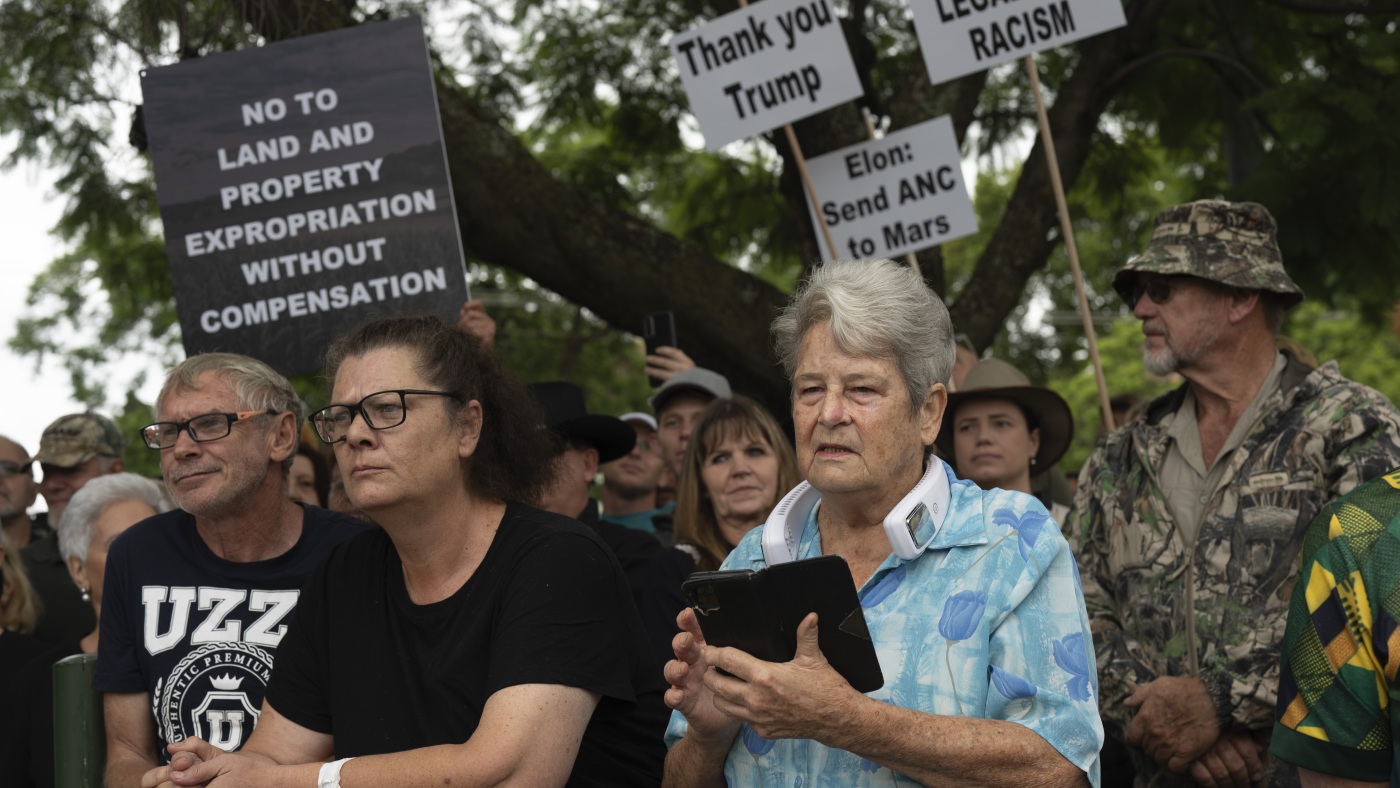The Arrival of White South African Afrikaners in the U.S.: A Complex Web of Politics, Persecution, and Policy
The Unprecedented Move
The announcement of the first group of white South African Afrikaners arriving in the U.S. as refugees under the Trump administration has ignited a firestorm of reactions and debates. This move, unprecedented in its selectivity, has raised questions about the administration’s motives, the validity of the claims of persecution, and the broader implications for U.S. refugee policy and international relations. To understand the nuances of this situation, it is essential to delve into the details of the executive order, the journey of the refugees, the controversies surrounding the move, and its potential impact on future policies and diplomatic ties.
The Executive Order and Its Ramifications
The Birth of a Controversial Policy
The catalyst for this contentious issue was an executive order signed by President Trump three months ago. This order allowed white Afrikaners from South Africa to apply for refugee status in the U.S., a decision that has been met with both acclaim and condemnation. The first cohort of 49 Afrikaners, consisting mainly of families, young couples, and older individuals, is scheduled to touch down in Washington, D.C., marking a significant shift in the administration’s refugee policies.
A Surprised and Dismayed South Africa
The South African government has been taken aback by Trump’s executive order, dismissing it as a response to misinformation. The government has refuted claims of racial discrimination against white Afrikaners, maintaining that the country’s land reform laws are not targeted at any specific racial group. President Ramaphosa’s spokesman has been vocal in criticizing the U.S. administration’s actions, deeming the claims of persecution as baseless.
The Journey to a New Home
The Departure from Johannesburg
The group of 49 Afrikaners embarked on their journey from Johannesburg’s OR Tambo Airport on a flight chartered by Omni Air International, based in Tulsa, Oklahoma. The flight made a stop in Dakar for refueling before continuing to Washington, D.C. This journey is notable as it is one of the few instances where the Trump administration has permitted refugee admissions during a period when most other refugee programs are suspended.
The Roots of the Decision
The Trump administration’s decision to grant refugee status to white Afrikaners is grounded in allegations of persecution and racial discrimination. The administration has pointed to a land reform law enacted in South Africa earlier this year as a primary cause for the perceived threat to white Afrikaners. This law aims to redistribute land to Black South Africans, a move that some, including Elon Musk, have interpreted as discriminatory against white farmers.
The Storm of Controversies and Criticisms
The Dispute Over Persecution
The claim that white Afrikaners are being persecuted in South Africa has been a hotly debated topic. Critics argue that the Trump administration’s narrative of persecution is overstated and politically driven. The South African government has consistently refuted these claims, asserting that the land reform laws are designed to address historical injustices and not to target any specific racial group.
The Political Underpinnings
The move has been seen by some as a strategic political maneuver by the Trump administration to appeal to a specific voter base. The administration’s decision to halt nearly all migrant asylum claims while making an exception for white South Africans has drawn scrutiny and criticism. The selective nature of this refugee program has been a point of contention, with many questioning the administration’s priorities and motivations.
The Ripple Effects
A Shift in U.S. Refugee Policy
The Trump administration’s decision to grant refugee status to white Afrikaners while suspending most other refugee programs has profound implications for U.S. refugee policy. It establishes a precedent for selective refugee admissions based on perceived political and racial dynamics, which could have long-lasting consequences for future refugee policies.
Strained Diplomatic Ties
The move has also put a strain on relations between the U.S. and South Africa. The South African government’s criticism of the U.S. administration’s actions underscores the diplomatic tensions that have arisen from this decision. The U.S. administration’s claims of persecution and its decision to grant refugee status to white Afrikaners have been met with skepticism and criticism from the South African government and international observers.
A Divisive Decision and Its Future
The arrival of the first group of white South African Afrikaners in the U.S. as refugees under the Trump administration is a divisive decision with far-reaching implications. While the administration has cited claims of persecution and racial discrimination, the South African government has strongly denied these allegations. The move has sparked controversy and criticism, raising questions about the selective nature of the U.S. refugee program and its broader implications for international relations. As the first group of Afrikaners begins their new lives in the U.S., the world watches to see how this unprecedented decision will shape future refugee policies and diplomatic relations. The outcome of this situation will undoubtedly have a lasting impact on how the U.S. approaches refugee admissions and international diplomacy, setting a precedent that could be felt for years to come.








